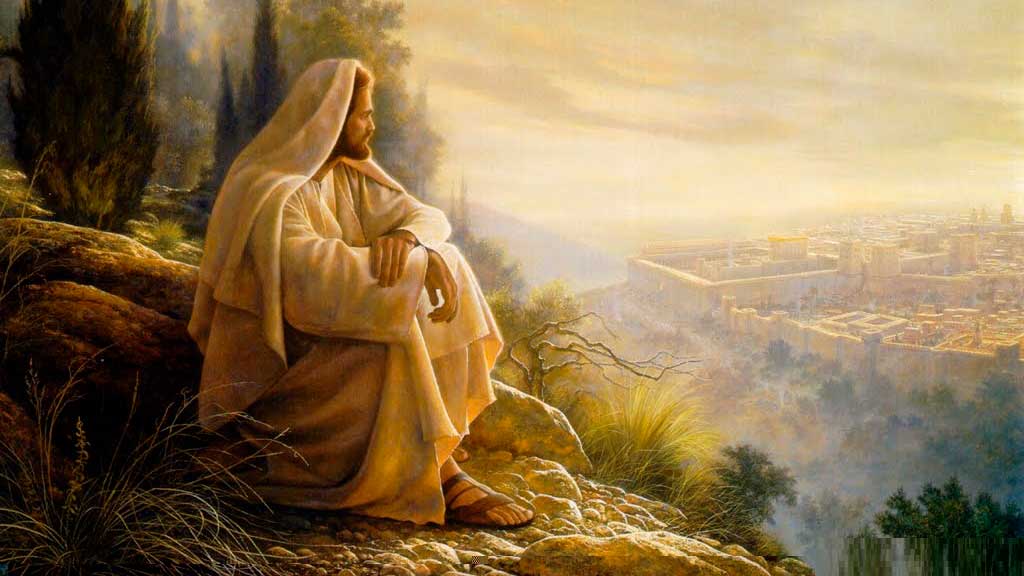Brian Zahnd preached a great sermon this Sunday. You should really listen to it if you've got half an hour. He talked about how we live in a culture of constant anxiety; those organizations that fight for our attention justify their own existence by making us need them. Whether it's big banks or complex financial institutions telling us there isn't enough to go around and we need more, or if it's various electoral entities telling us government is either too big or not big enough, or even juswt good old advertising telling us we're missing out on something vital, we're kept in a constant state of upheaval, often running around like a chicken with its head cut off, specifically because our culture is designed for us to live this way.
He contrasted this notion with the hallmark of the first Christians, who lived in a time where things were actually more chaotic, anxiety-inducing, and difficult than the one in which most US Christians live today. Still there was peace and calm, specifically because peace was the point. It wasn't about fighting for power, but living with a knowledge of eternity, that the Kingdom was already here and already triumphant.
They did not gain members by proselytizing, but by living well - not giving into the anxiety of the day, but by being calm, at peace - and people noticed.
Towards the end, Zahnd said, "In an age of great anxiety, those you really trust for peace and security are the ones you worship." He speculated that our society in general, as well as many Christians, actually trust military might, or economic principles, or government of a certain ideology for safety and security rather than Christ as thus are idolaters. We can tell by how much the anxiety of the culture impacts our lives. Followers of Jesus don't fly off the handle at every breaking news headline. They don't run around claiming the world is ending - shoot, they don't run around at all, because they're participating in a Kingdom without end and time just isn't as scarce as it once was.
He said, "I wish the Church in the United States was quieter - that it said less and lived better more." This is the ultimate testimony to the faith we possess - if we're willing to actually base a life on it. Yes, that does mean a bit of ostracism, since a Christian life is built on a whole different set of presuppositions from the culture at large. We might have to give up our places of privilege in the center of social order and break the from civil religion and relegates Christ to a once and future king with little relevance for the in between.
A peculiar people can't look very peculiar from the center of culture and society.
I think this perspective is the one I've been seeking all the years when I've tried (and failed) to write adequately about Memorial Day. It's not the reverence of sacrifice and the mourning/honoring of loved ones that makes me uncomfortable; it's the cultural extensions of this practice due to our distinct disconnection from the horror of war.
Most of us don't actually have a close relative who died in battle - certainly not someone we knew well - and most of us don't even know someone who lost someone close to them, because, in recent year, the fighting has been done by an increasingly small and insular group of people. I'm not sure if that isolation of the public from the pain of war is intentional or not, but it plays into the hands of our anxiety-inducing institutions. Real trauma causes people to question their assumptions - about society, about life, about everything - but a borrowed trauma does exactly the opposite. Seeing poverty or disaster on TV keeps us asking "what can I do," rather than the inevitable "why" of first-hand experience.
Instead of using this time of national mourning and reflection to double down on our efforts to prevent war, we use it as another cog in the patriotic machine that runs on a fuel of pithy sayings, like 'Freedom isn't free,' which might be true from a certain perspective on the world, but is a direct affront to the gospel message. I know I should stay away from Facebook on days like these, but I saw one politician post a prayer (a prayer really to veterans rather than about) that included the line, "let us affirm our eternal debts..." This is religious language and it's deep theology.
True freedom is not an unencumbered choice, but the ability to live with dignity and love regardless of our choice. It is free - once and for all - because one person defeated the last bastion of real anxiety and fear, conquering death on the cross. This is he who holds the debt eternal and he has wiped the slate clean. No one owes anything and so we live likewise in love - not to prove a point, but to bear witness to reality: that anxiety is a fools errand and fear is a paper tiger.
That doesn't mean we abandon justice or even the pursuit of choice for all people, but it comes not through conflict, but sacrificial love. I won't march against war - I can't think of anything more pointless - but I will stand up for peace, not just on a picket line, but in life everyday.
As Zahnd said at the end of the sermon, "We want people to say, 'Look at those Christians; they don't get worked up about anything,'" but work every day for and in true peace.

No comments:
Post a Comment